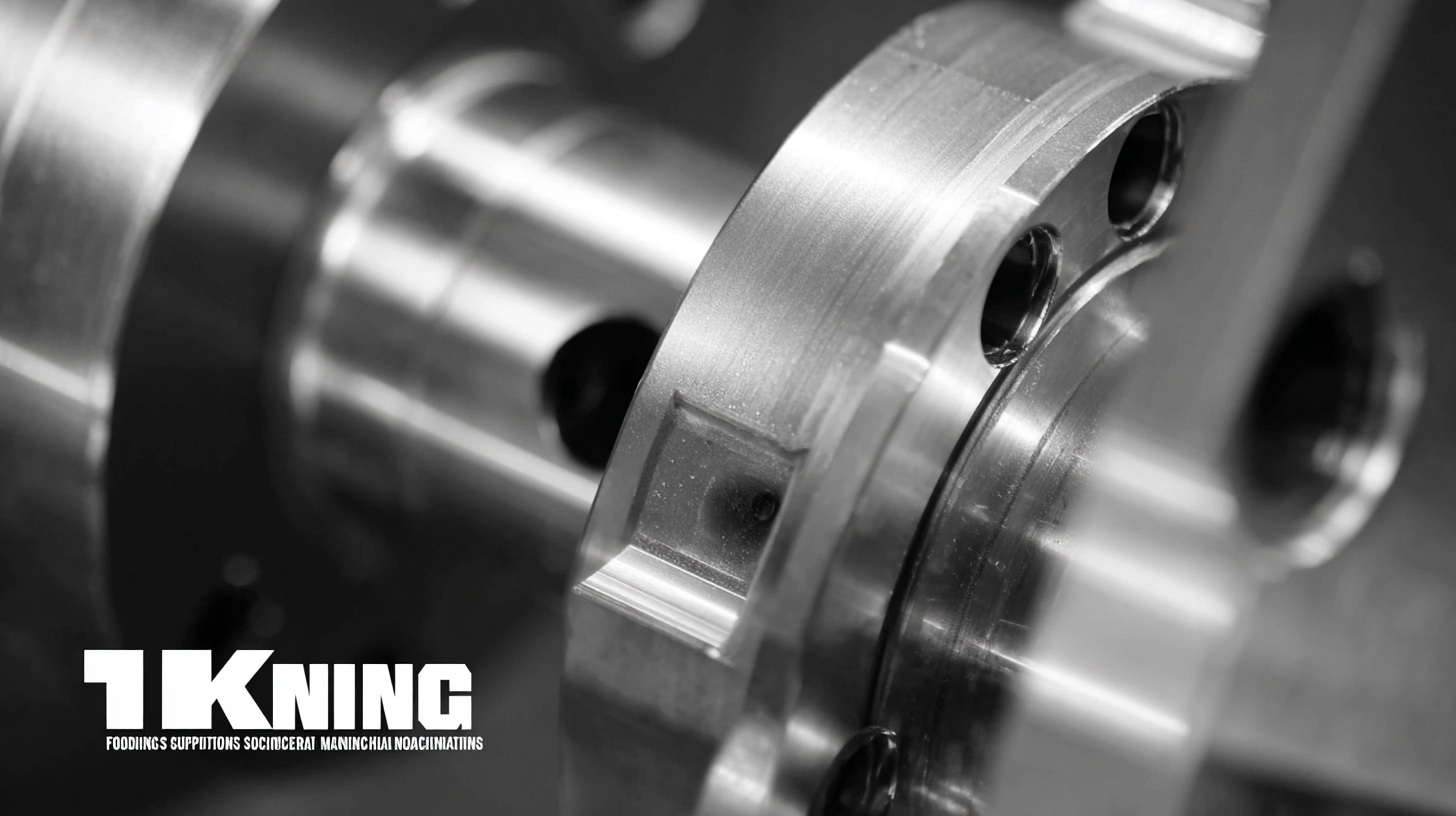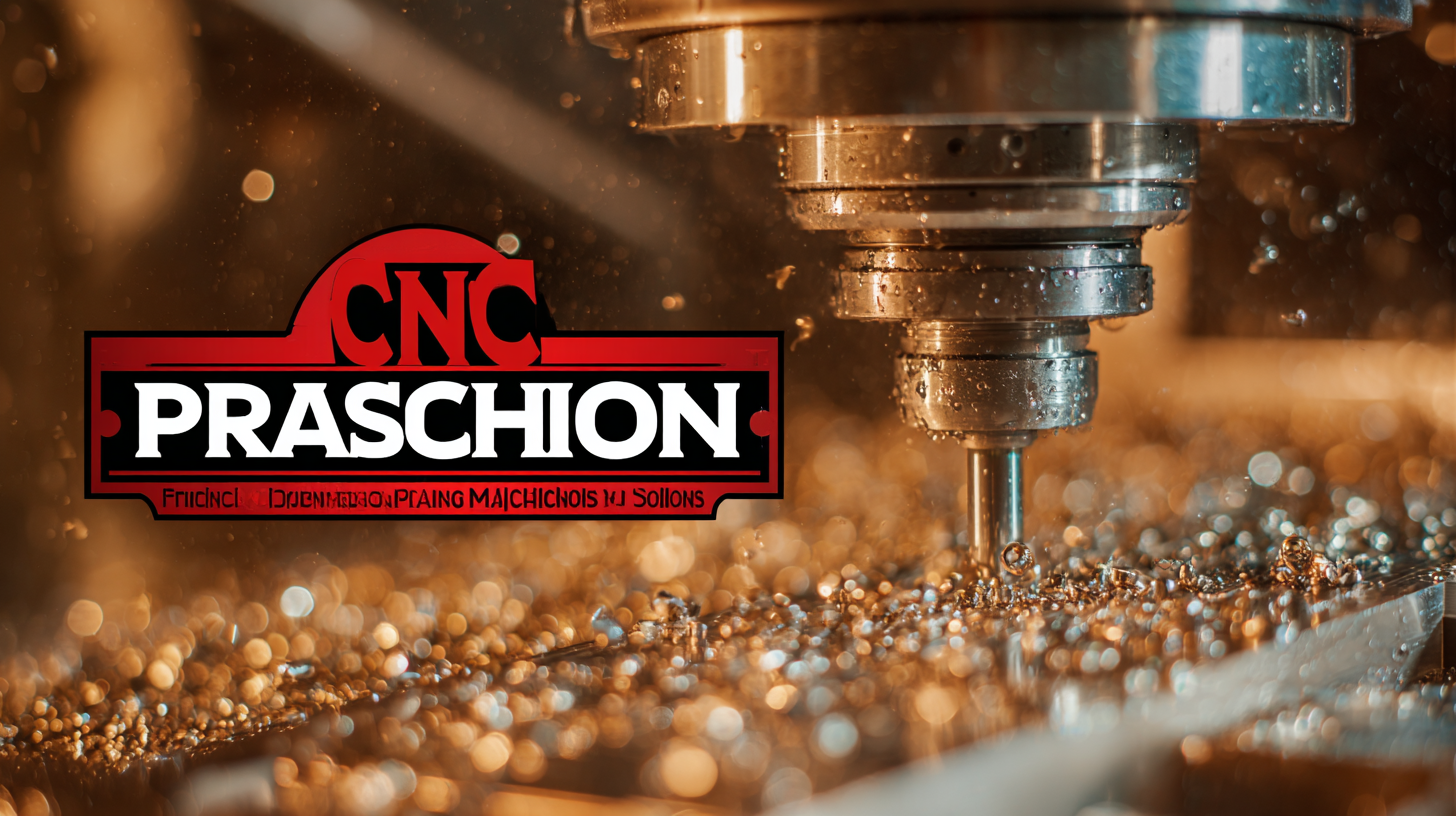Finding Top Quality Suppliers for Best Precision CNC Machining Solutions
In the rapidly evolving landscape of manufacturing, the demand for precision CNC machining has surged, driven by advancements in technology and increased global competition. A recent report by Grand View Research indicates that the global CNC machining market is projected to reach USD 102.77 billion by 2025, with a compound annual growth rate (CAGR) of 6.4% from 2019 to 2025. This growth is propelled by industries seeking high-quality, accurate, and efficient machining solutions to meet the stringent requirements of modern design and production processes. As businesses aim to streamline operations and enhance product quality, finding top-quality suppliers that specialize in precision CNC machining has become paramount. Companies that leverage cutting-edge machining techniques stand to gain a competitive edge in their respective markets, making the identification of reliable partners critical for success in this dynamic landscape.

Understanding the Importance of Quality in CNC Machining Suppliers
When it comes to CNC machining, the quality of suppliers plays a crucial role in determining the overall success of manufacturing processes. A recent report from the International Organization for Standardization (ISO) highlights that companies that prioritize quality in their suppliers experience up to a 25% reduction in production costs. This significant cost advantage is primarily due to fewer defects, reduced rework, and lower risk of project delays.

Moreover, the correlation between supplier quality and customer satisfaction is profound. According to a survey by the Manufacturing Institute, nearly 60% of manufacturers stated that their reputation hinges on the quality of their suppliers. High-quality CNC machining suppliers not only deliver precision parts that meet tight tolerances but also enhance product durability and performance, which is critical in industries such as aerospace and automotive where safety and reliability are paramount. Therefore, investing time and resources into finding top-tier suppliers can yield both immediate and long-term benefits for companies aiming to excel in the competitive manufacturing landscape.
Key Factors to Consider When Comparing CNC Machining Service Providers
When it comes to selecting CNC machining service providers, several key factors significantly influence the decision-making process. First and foremost, evaluating a supplier's technological capabilities is crucial. According to a report from MarketsandMarkets, the CNC machining market is projected to grow from USD 63.2 billion in 2021 to USD 89.4 billion by 2026, emphasizing the importance of advanced technology in improving machining precision and efficiency. Look for providers that utilize state-of-the-art machinery and software to ensure the highest quality of output.
Additionally, quality assurance and certifications are essential when comparing different CNC machining service providers. A study by Grand View Research revealed that 60% of manufacturing companies experience challenges due to inferior component quality, which can lead to costly delays and rework. Always inquire about a supplier's quality control processes and relevant certifications, such as ISO 9001, to ensure that their products meet industry standards.
Tip: When assessing potential suppliers, consider requesting samples of their previous work to evaluate their precision and craftsmanship firsthand. This practical approach can help you make a more informed decision and find a partner that aligns with your quality expectations. Furthermore, don’t forget to assess their customer service responsiveness, as effective communication can greatly enhance the collaborative process throughout your project.
Evaluating Precision and Technology Capabilities of CNC Machining Firms
Finding top quality suppliers for precision CNC machining solutions requires a thorough evaluation of their technology capabilities and precision practices. The global CNC machine market is projected to reach approximately $195.59 billion by 2032, growing at a compound annual growth rate (CAGR) of 9.9% from $101.22 billion in 2025. This robust growth is indicative of the increasing reliance on automation and precision in manufacturing, particularly in high-end sectors.
For those seeking suppliers, it is imperative to consider the technological integration of CNC systems. Companies that adopt Industry 4.0 principles, such as integrating operational technology (OT) and information technology (IT), can offer enhanced efficiency and superior precision. The Chinese CNC machine market alone achieved a valuation of 409 billion yuan in 2023, with projections suggesting further growth, indicating a competitive landscape ripe for innovation.
**Tip:** When assessing potential suppliers, prioritize those with proven experience in advanced CNC technologies, as well as a strong track record in precision part manufacturing. Evaluate their capabilities in handling complex materials and their approach to quality control, which can ultimately impact your production efficiency and product quality.
**Tip:** Keep an eye on emerging companies in the CNC machining space, particularly those with a focus on aerospace, medical, and automotive industries. These sectors demand the highest precision and are often indicators of suppliers that can meet stringent quality standards.
Finding Top Quality Suppliers for Best Precision CNC Machining Solutions
This chart represents the evaluation of precision and technology capabilities of various CNC machining firms based on three key metrics: Precision Level, Technology Adoption, and Delivery Performance. The scores range from 0 to 100, where higher scores indicate better performance.
Cost-Effectiveness: Comparing Pricing Models of Top CNC Suppliers
When selecting a precision CNC machining supplier, understanding the cost-effectiveness of different pricing models is crucial. According to a report by MarketsandMarkets, the CNC machining market is projected to reach $100 billion by 2025, highlighting the competitive nature of this industry. Many suppliers offer varied pricing strategies, including fixed pricing, time-and-materials contracts, and tiered pricing. Understanding these models enables businesses to make informed decisions that align with their budgetary constraints while ensuring quality machining solutions.
**Tip: Always request detailed quotes from potential suppliers.** Having a breakdown of costs will allow you to compare different pricing models effectively. Some suppliers may offer lower base rates but charge extra for tooling or maintenance, which can inflate the overall project costs.
Additionally, considering the Total Cost of Ownership (TCO) is essential. A study by Deloitte mentions that TCO often surpasses initial cost savings, particularly in long-term contracts. While a cheaper supplier might seem like a good deal upfront, hidden costs such as delays, rework, and poor quality can significantly affect your bottom line.
**Tip: Evaluate supplier reliability and quality certifications.** Suppliers with ISO certification or other quality assurances tend to be more reliable, reducing long-term costs associated with quality control issues. Choosing a supplier based on comprehensive cost analysis can enhance both value and performance for your precision machining needs.
Finding Top Quality Suppliers for Best Precision CNC Machining Solutions - Cost-Effectiveness: Comparing Pricing Models of Top CNC Suppliers
| Supplier Type | Pricing Model | Average Cost per Part | Lead Time (Days) | Quality Rating (1-5) |
|---|---|---|---|---|
| Domestic Manufacturer | Flat Rate | $30 | 10 | 4 |
| International Supplier | Variable Rate | $25 | 15 | 3 |
| Local Machine Shop | Hourly Rate | $40 | 5 | 5 |
| Startup CNC Provider | Project Rate | $35 | 20 | 4 |
| Established CNC Firm | Bulk Pricing | $28 | 7 | 5 |
Assessing Customer Support and Reliability in CNC Machining Partnerships
When selecting a supplier for precision CNC machining, assessing customer support and reliability is paramount. According to the 2022 CNC Machining Industry Report, 70% of companies experience significant delays due to poor communication with their suppliers. A reliable CNC machining partner not only promises high-quality products but also ensures prompt responses and effective solutions to any issues that may arise. Building a relationship with a supplier who prioritizes customer support can lead to improved efficiency and reduced downtime in your operations.
Tip: Always inquire about the supplier’s customer support structure. Evaluate the availability of their support team, and consider testing their response times with initial inquiries before committing to a partnership.
Moreover, consider the supplier's track record in reliability. Researching their past performance and reading client testimonials can offer insights into their consistency. According to a recent survey by the Precision Machined Products Association, 55% of manufacturing firms would switch suppliers due to unreliability. This highlights the importance of not only the quality of the products but also the supplier's commitment to meeting deadlines and fulfilling orders accurately.
Tip: Request references and case studies from potential suppliers to better understand their reliability in real-world scenarios.
